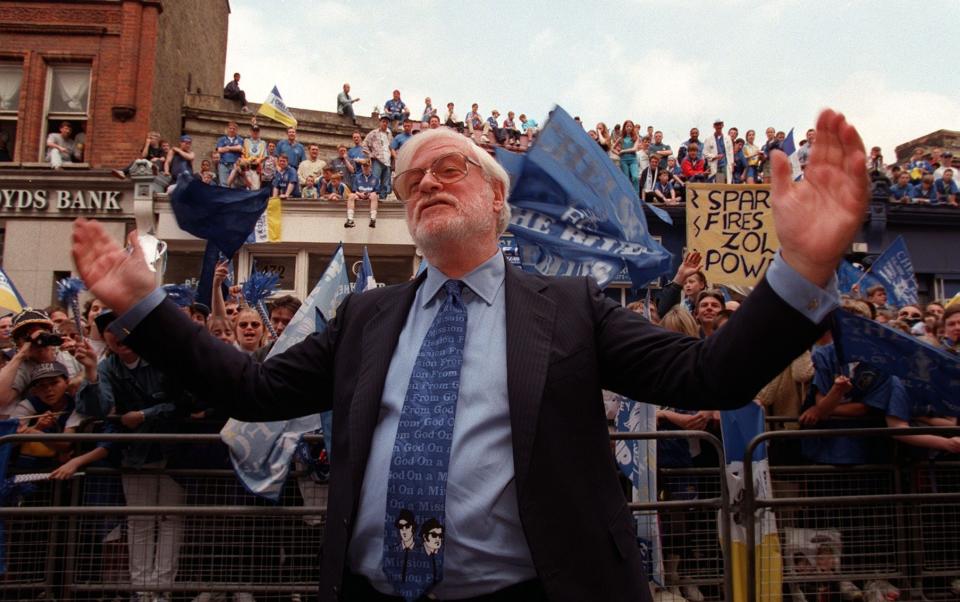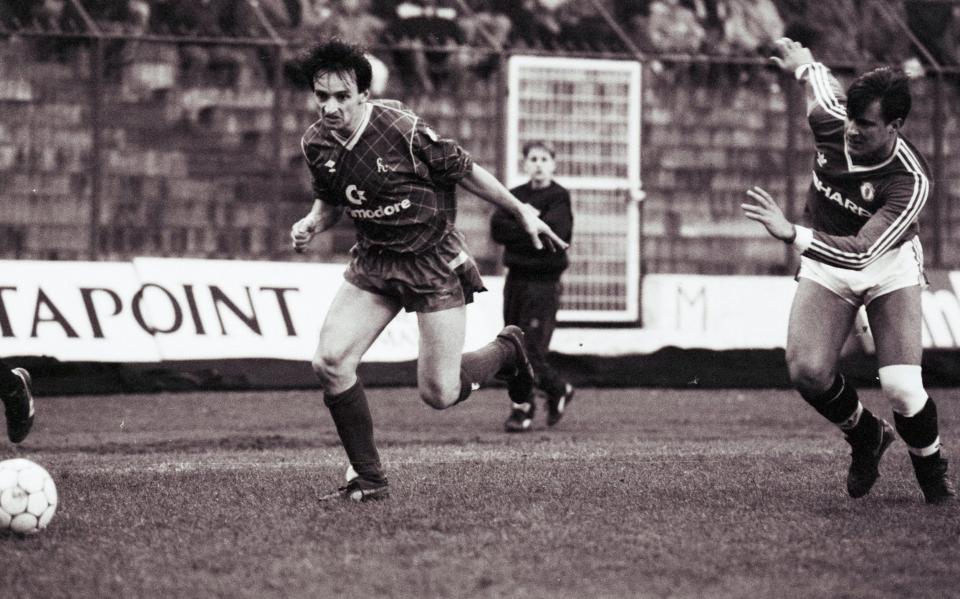Andy Hamilton interview: Chelsea are the poster boys for where football has gone wrong

Way back in 1995, the Royal Television Society award for the best single drama on television went to a film on Channel 4 called Eleven Men Against Eleven. Starring Timothy West and James Bolam, it was a superb piece of work, perhaps the best comedy ever made about football. Making pertinent comment on a time of growing sleaze within the game, it skewered everything from dodgy chairmen through dodgy agents to even dodgier Far Eastern betting syndicates. And boy did it make you laugh.
Looking back on it nearly 30 years on, chortling at its prescience, what becomes quickly obvious is that it was the work of someone who really knew what they were talking about. Which is no surprise as Andy Hamilton, its writer, admits that his obsession with football has long been close to a medical problem. Brought up in the flats three minutes’ walk from Stamford Bridge, he was a regular at Chelsea games from the age of six, obliging his mother to knit him a pair of socks just like Jimmy Greaves wore. Throughout his stellar career as a scriptwriter, comedian, radio personality and, most significantly of all, delivering the voice for Dr Elephant in the children’s show Peppa Pig, he has kept going back to the Bridge. Game after game, trophy after trophy, manager after manager he has been there. Until now. Last year he gave up his season ticket. And he has just written a lovely book called Blue was the Colour explaining the reasons behind the cessation of his lifelong devotion.
“It’s a lament for a broken relationship,” he says of the book when he meets Telegraph Sport in a bar in Soho. “It’s by someone who feels and behaves like a jilted lover. It seems to me football now is in the hands of people with no agenda further than making money. And I refuse to be part of their game.”
But here’s the odd thing. When he wrote Eleven Men Against Eleven much the same could be said. This was not a Ted Lasso-style feelgood comedy. It was a brutal dissection, doused in cynical humour. Without giving too much away, the conclusion sees James Bolam’s enduring football romantic broken by the revelation that it was ever thus: football, he discovers as his personal dream is smashed, has always been the sleaziest of sports, money obsessed and broken. Yet Hamilton did not give up going to matches then. He was still a regular at the Bridge for another two-and-a-half decades. So what is it that has prompted his departure from a game he has long known as damaged? Has he simply turned into a grumpy old man?
“Well, I am old and I am grumpy,” he admits. “But I believe this is an existential moment for football, a real challenge about what it wants to be. New investors are looking to make it a global business, mediated through television. And Chelsea are the poster boys for where it’s gone wrong. The club is subject to a ridiculous business experiment with no understanding of what the sport is meant to be. We are none the wiser who the real owners are, who this Clearlake operation is. It is so murky. It is ludicrously out of hand.”
But if his issue is with those occupying the directors’ box, he watched Chelsea throughout the time when they were almost plunged into bankruptcy by Brian Mears, when Ken Bates threatened to install electric fences to corral his own customers and through all the controversies surrounding Roman Abramovich’s ownership. Why are Todd Boehly and his hapless crew any more objectionable than that unholy catalogue?

“Partly it’s me,” he says. “I guess you grow away from something over a period of time. The Bates era, the team was patchy I admit, but you look back on it now with real affection. Partly because there were lots of personalities in there you connected with. I remember I once turned up late to play in a game in Holland Park only to find out that Pat Nevin had been playing in it and had just left as I got there. Imagine that with whoever plays for Chelsea now. And Doug Rougvie: all the Chelsea fans knew he was not very good, but we loved him and he’d come into the pub and talk to us. Those connections are gone. You literally have no idea who these people wearing the shirt are now. Actually I don’t think this lot even know each other. It’s the one big advantage any team playing Chelsea under Boehly has: at least they have been introduced before kick-off.”

As Hamilton explains in his book, the growing disconnect hurts all the more because he was once so connected.
“As a kid, 95 per cent of my waking thoughts revolved around Chelsea,” he recalls. “I used to watch them train in the Stamford Bridge car park during school holidays. They looked like us, they behaved like we did when we played in the cage next to our house. The notion of letting a bunch of kids watch a team train now is just not plausible. But that connection was everything. I would daydream about being a player. At 69, when I’m playing in my weekly game of five-a-side, I still think it might happen. Though I admit it would involve the biggest injury crisis in history. The roots of the game go so deep into our culture. And they’re being torn up daily by the new ways.”
And he believes the attitudes at the top of the game percolate downwards.
“The game is a reflection of how we have become less communal,” he says. “And it’s doused in this extraordinary vitriol. People get inordinately angry. Sure, I grew up in a time of hooliganism, which was a manifestation of tribalism. What football is now is a 24/7 angry tirade. Now everyone has an opinion about everything, but it’s a destructive relationship. Spending your whole life getting worked up about Harry Maguire? Come on, that is not healthy.”
His book, however, is not entirely angry. Like all his output over the years, it is also amusing, wry, charming.
“Well, I try to see the funny side of the bullshit, the delusion, the denial,” he says. “Listen, I’ve been predicting for 25 years the bubble is about to burst. But bubbles do burst. And I think we are heading for a real reckoning in football. You never know, we may come out the other side all the better for it.”
And if we do, Andy Hamilton might even return to the Bridge.
“Yes, that would be nice,” he says with a smile.
Blue was the Colour by Andy Hamilton is published by Floodlit Dreams and Pitch Publishing in their Football Shorts series.

